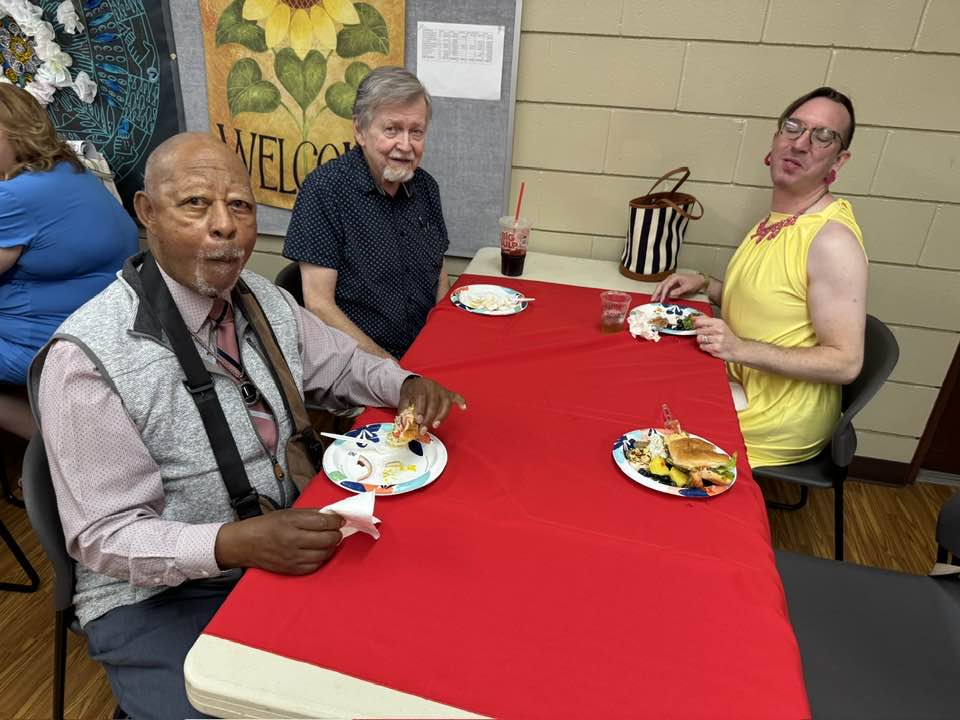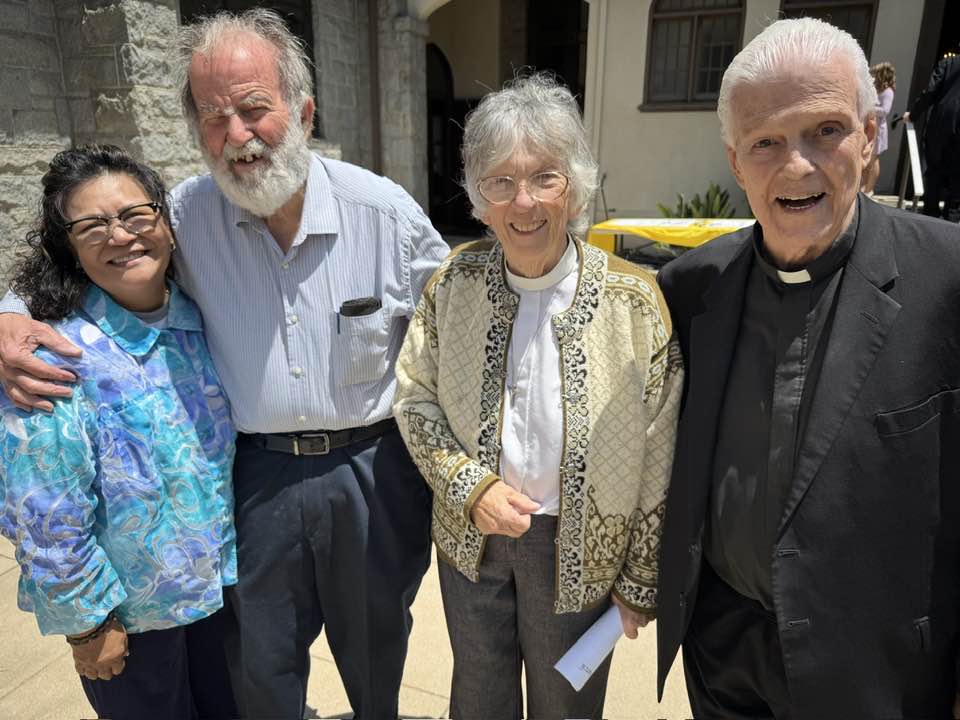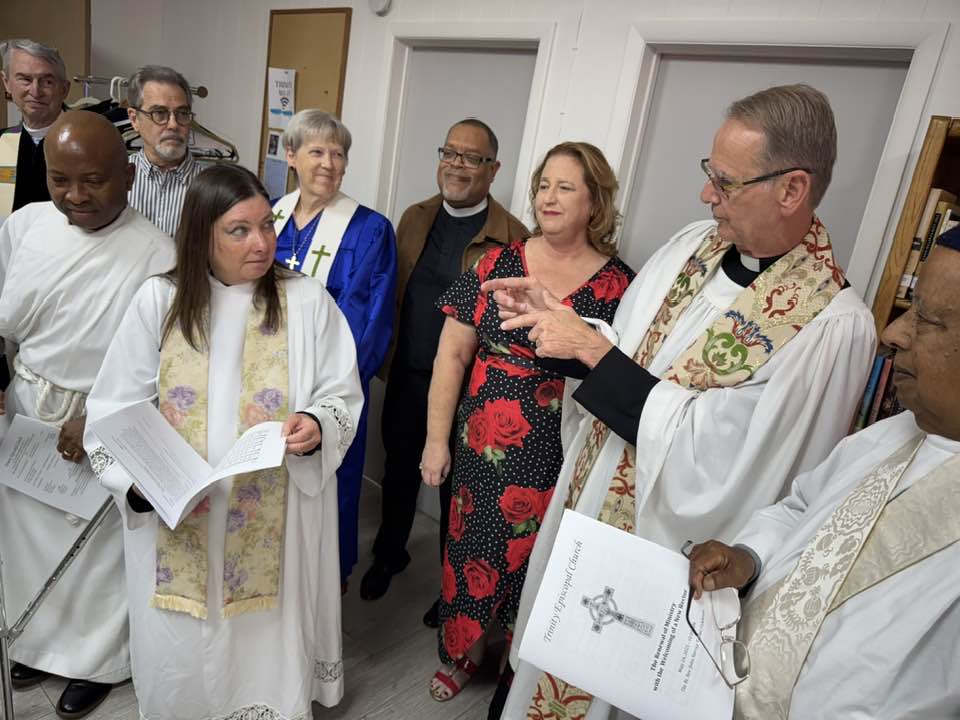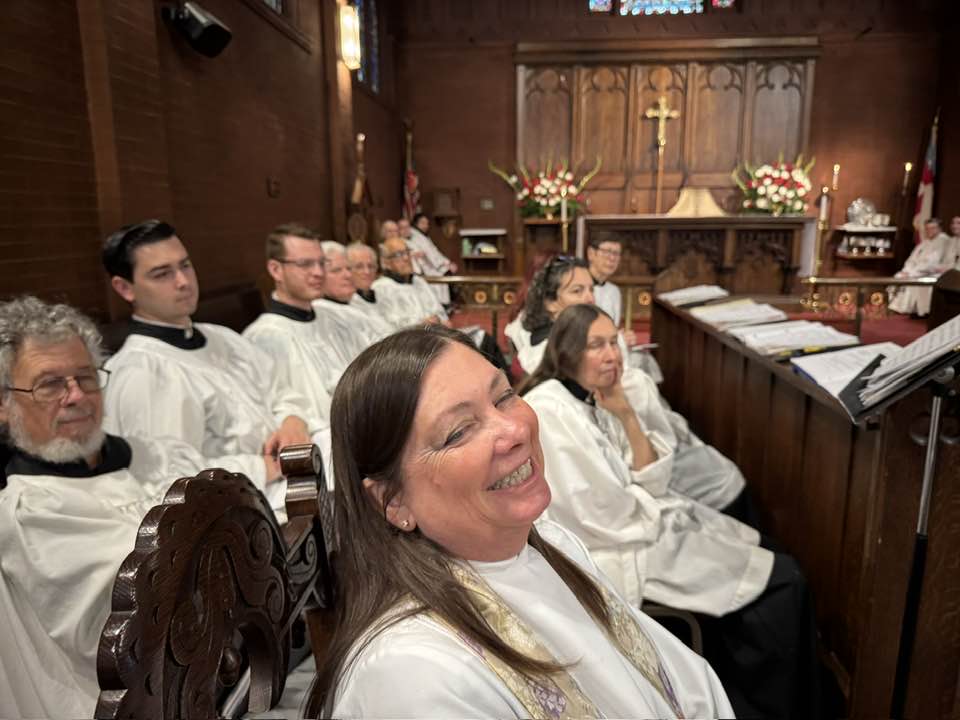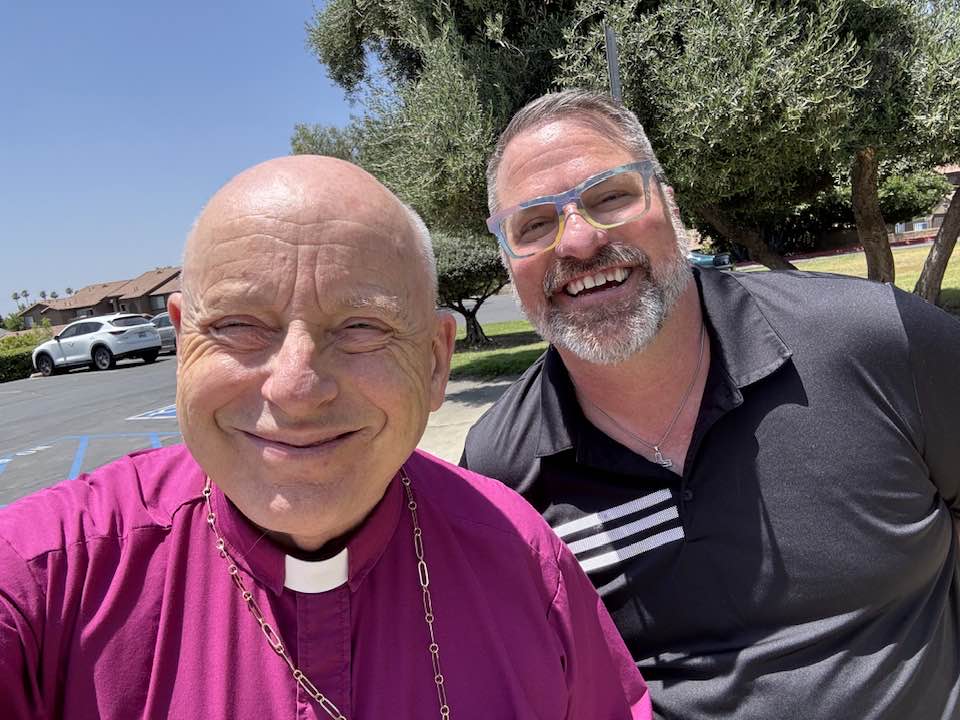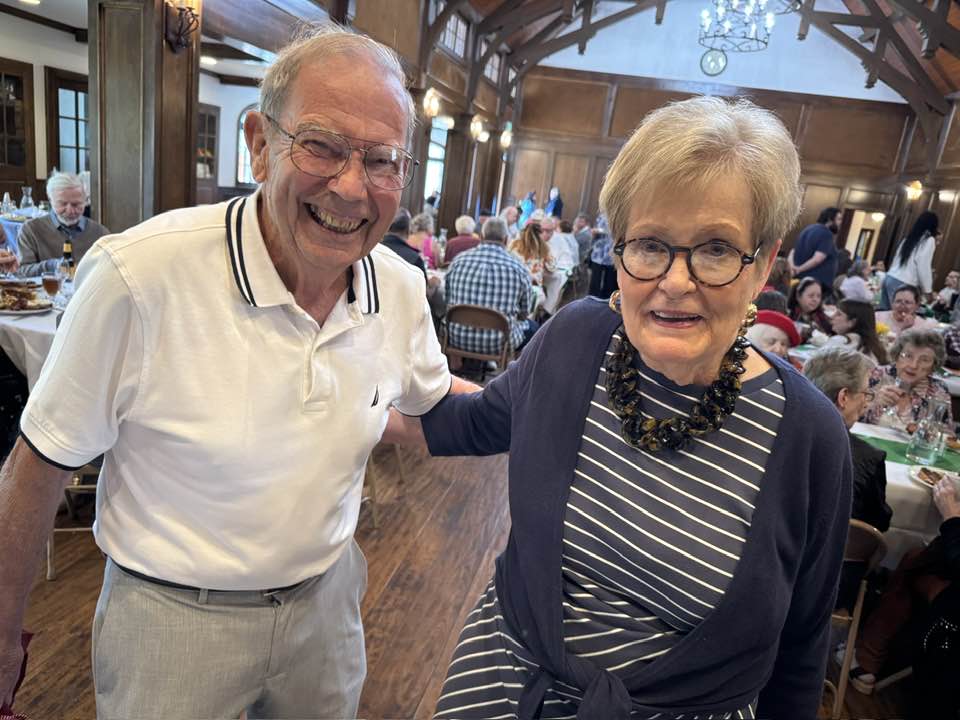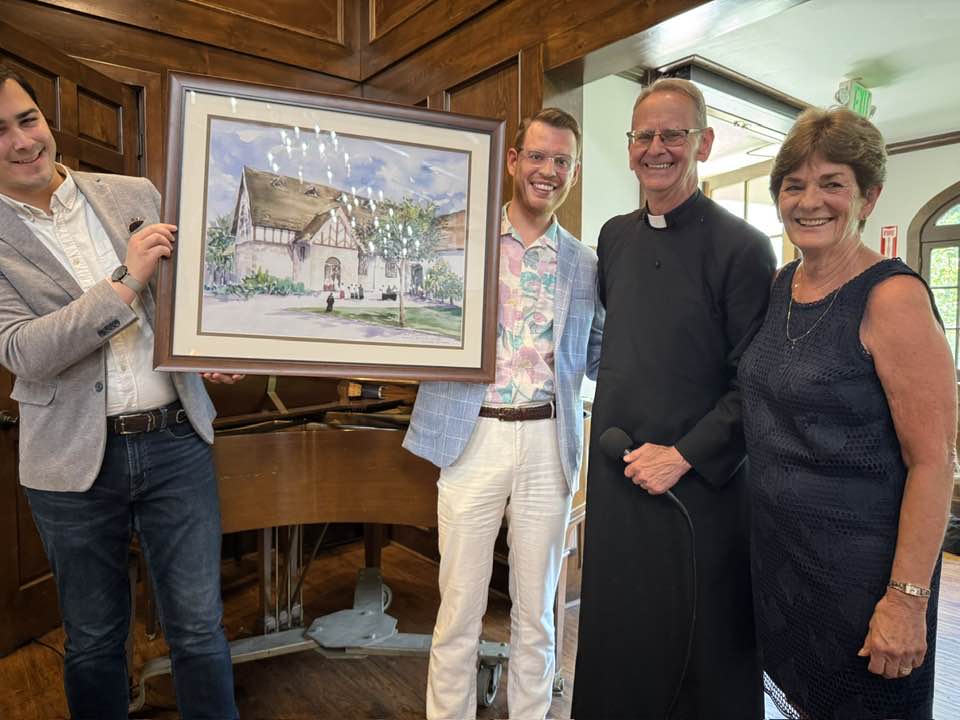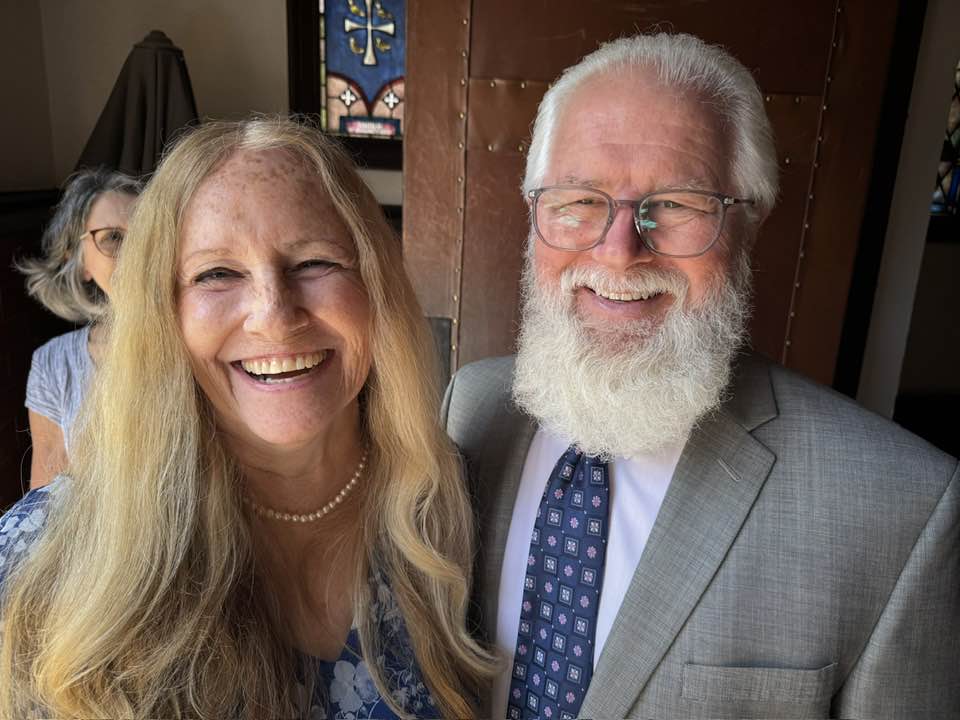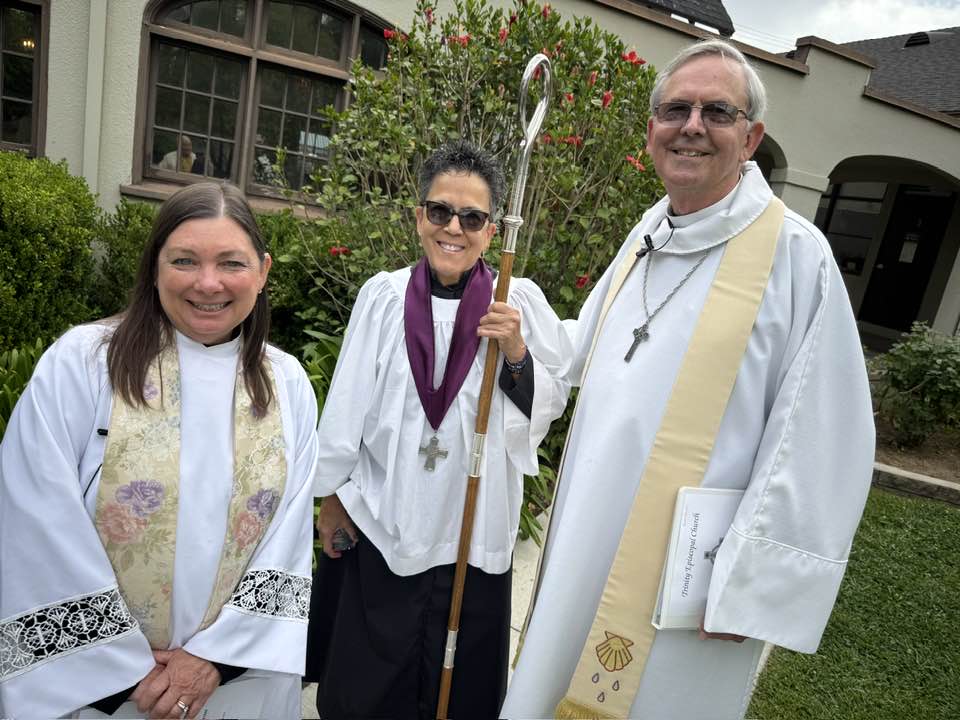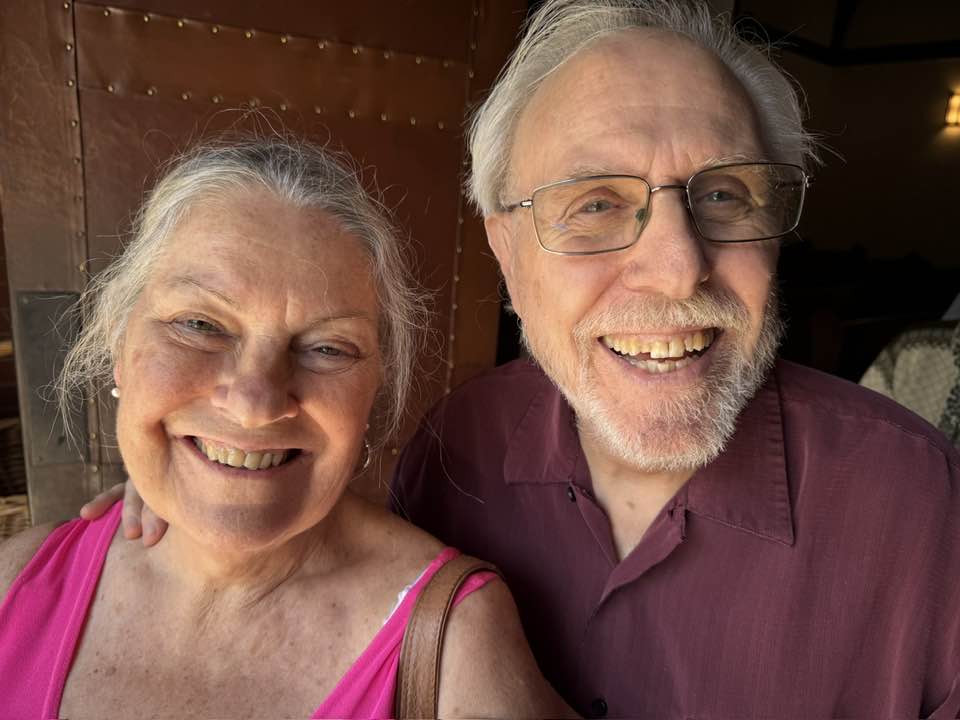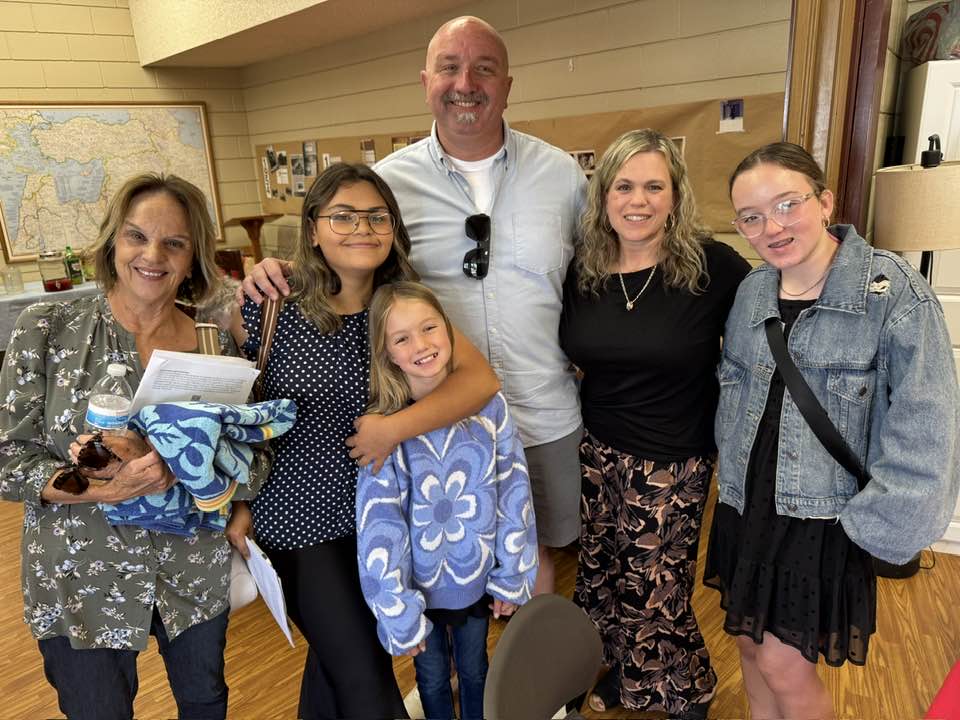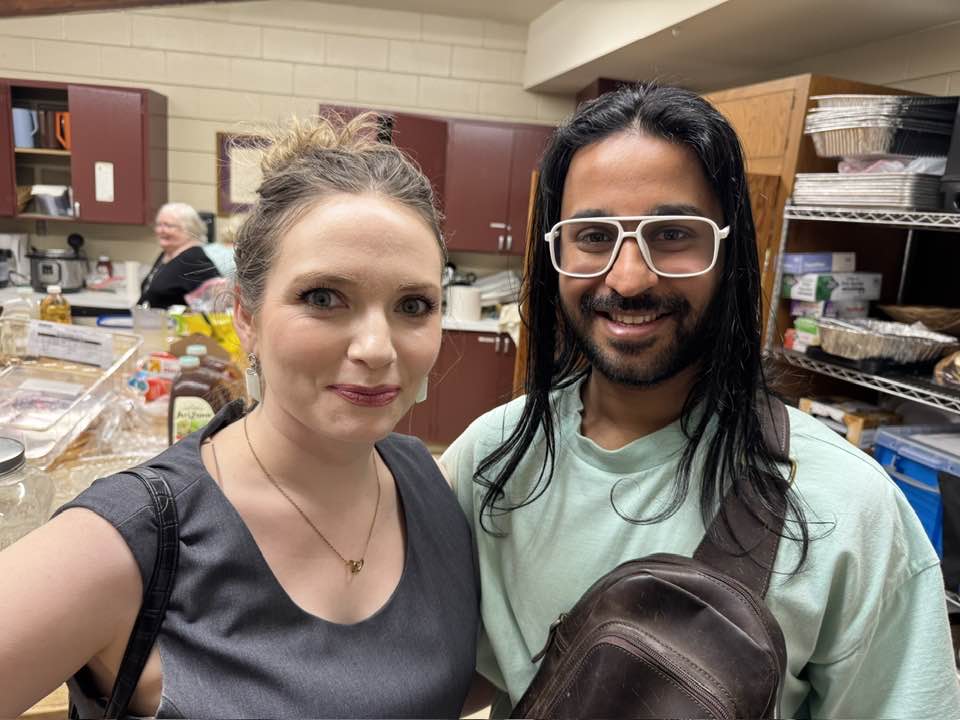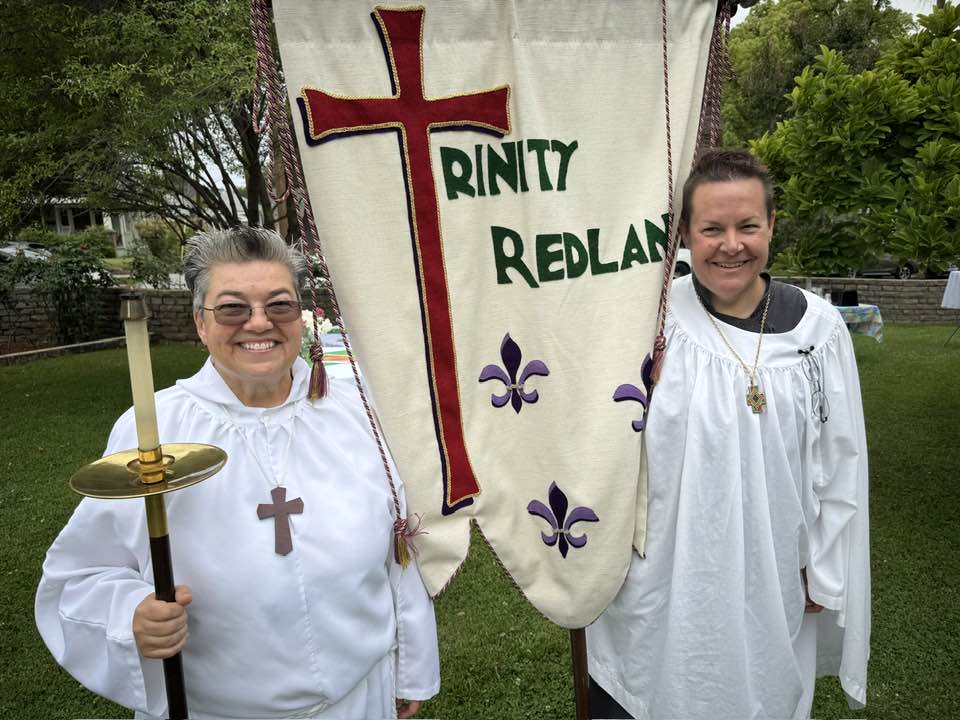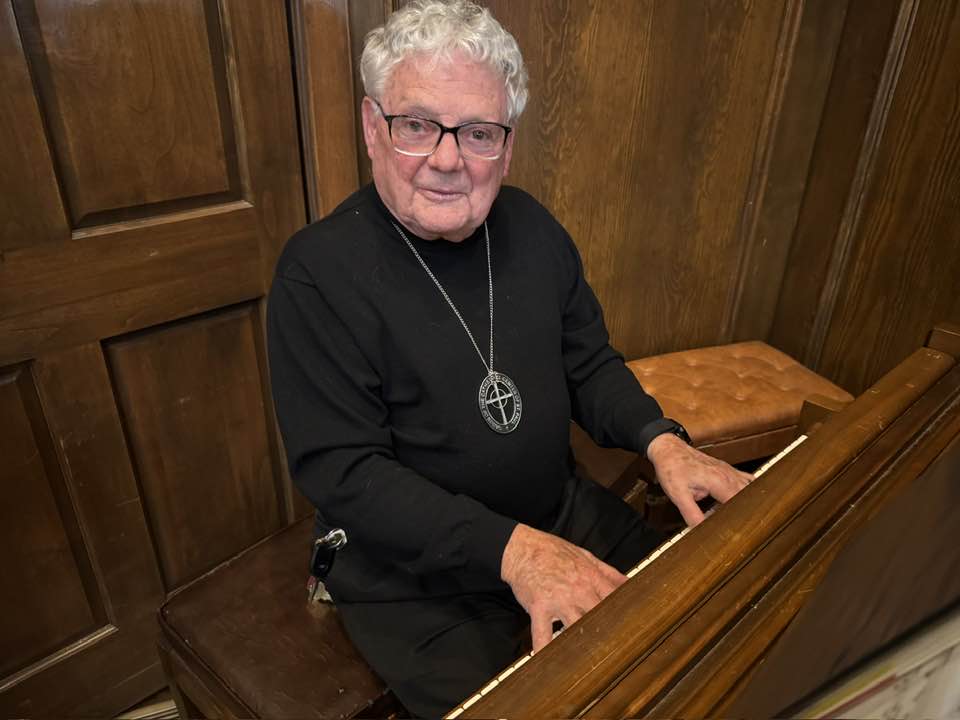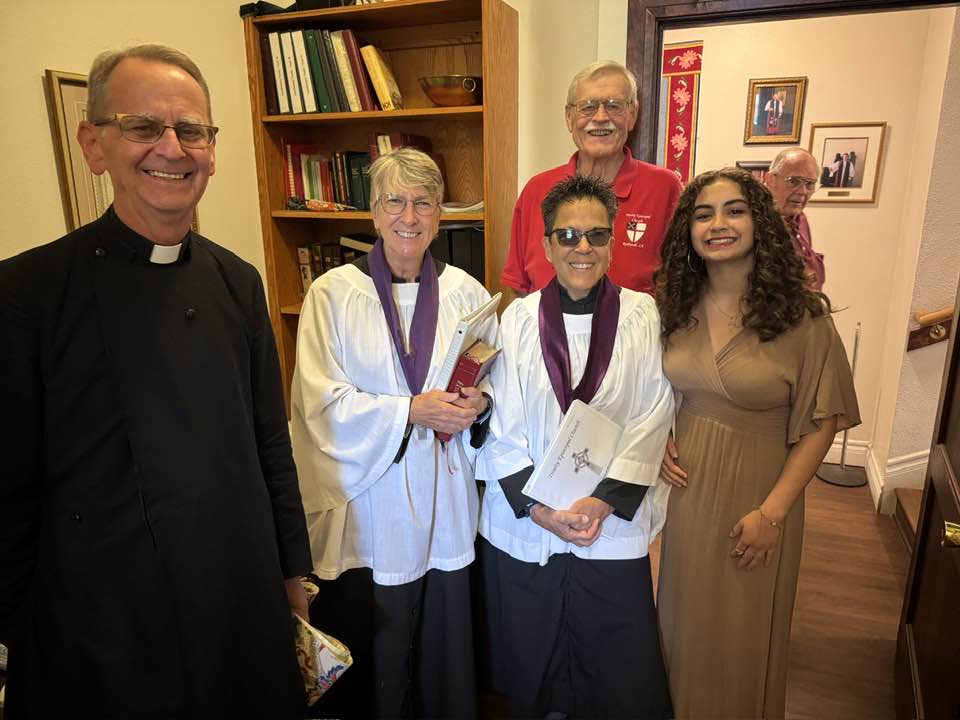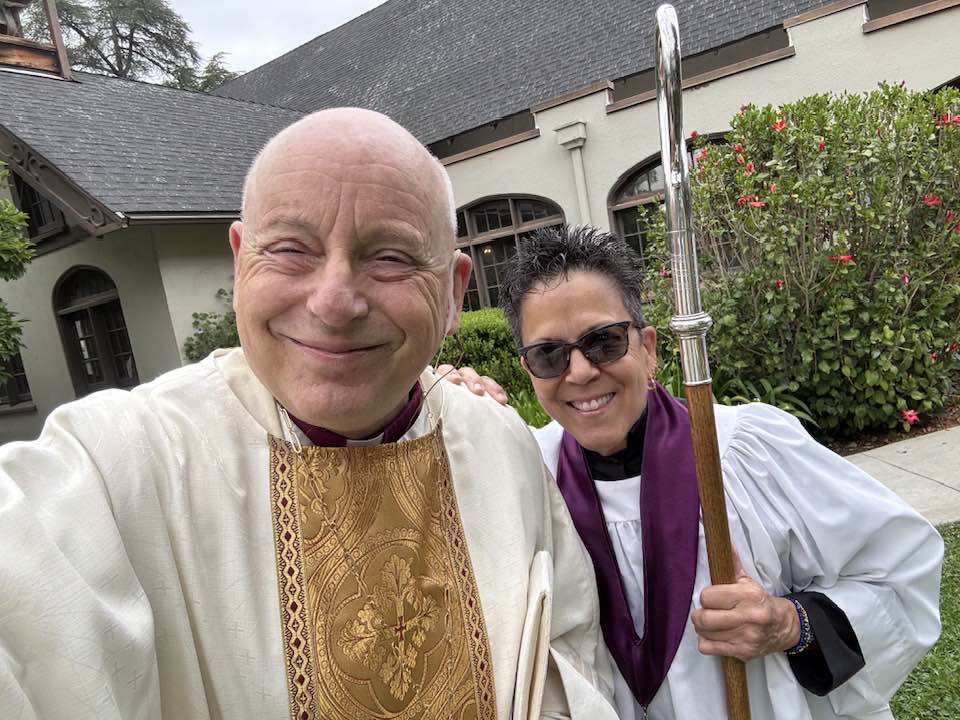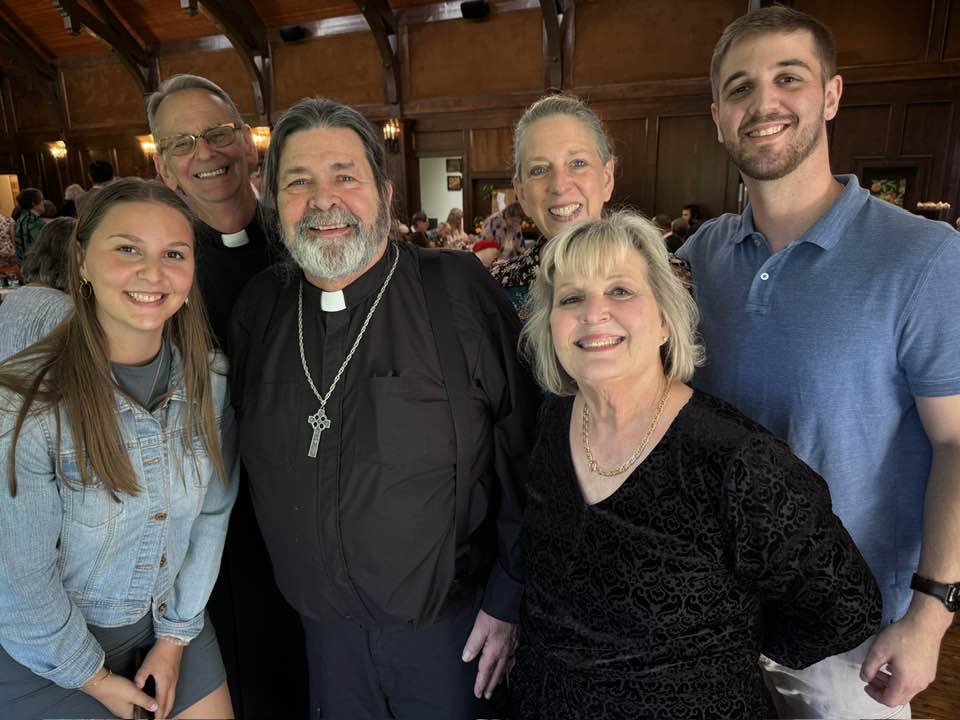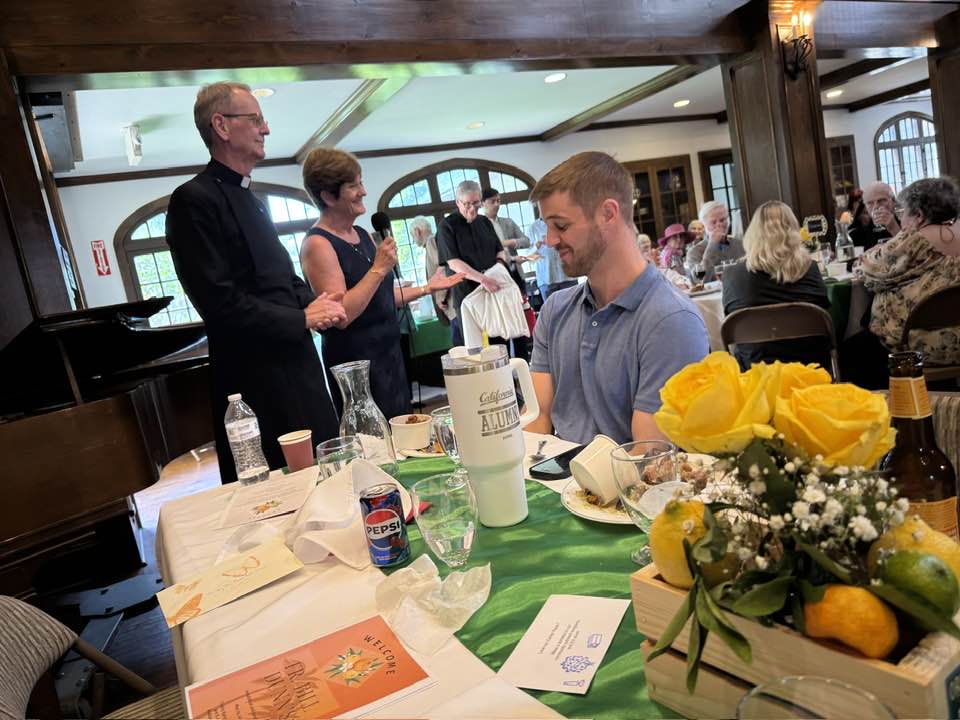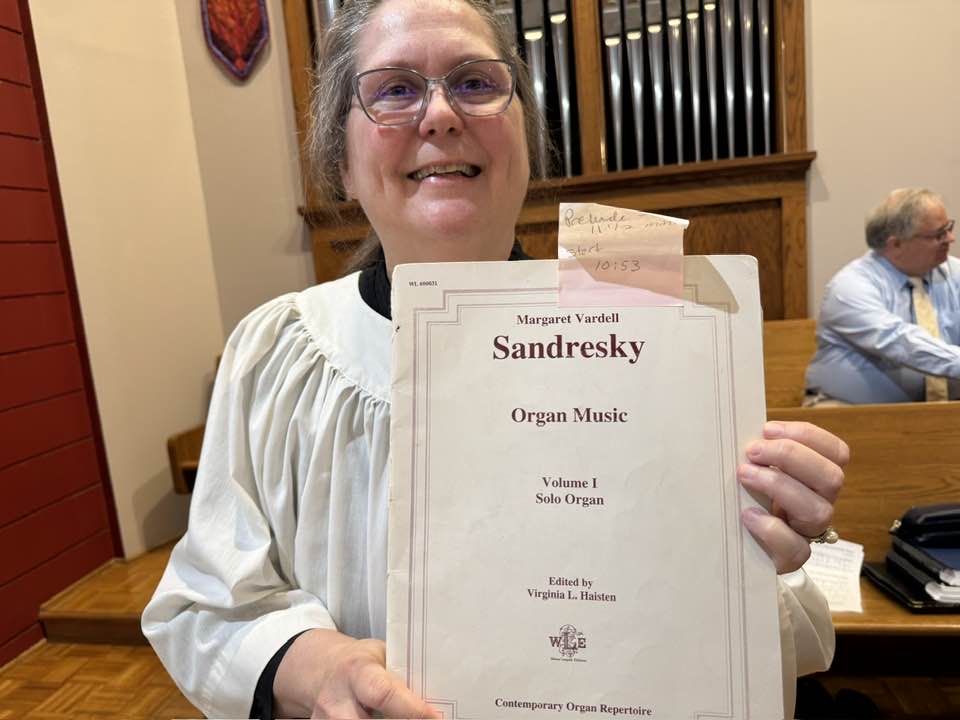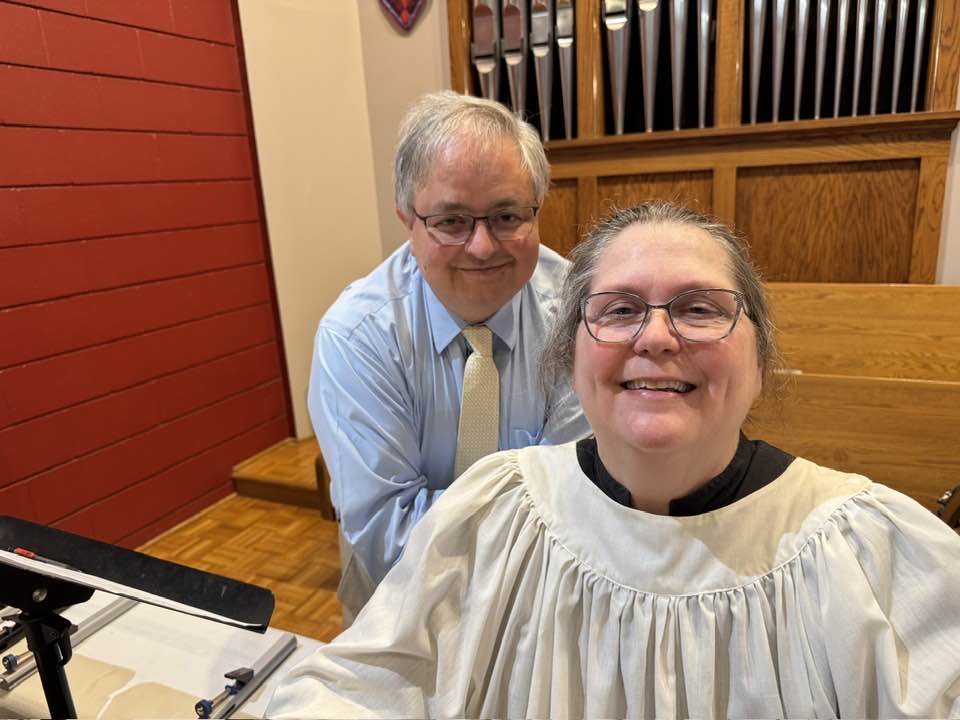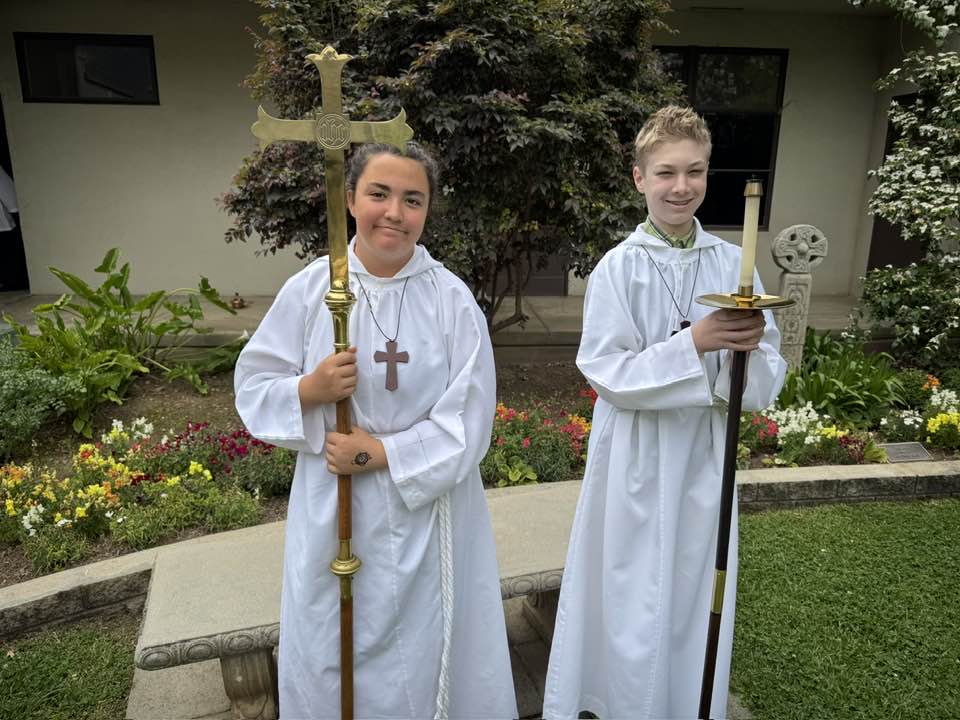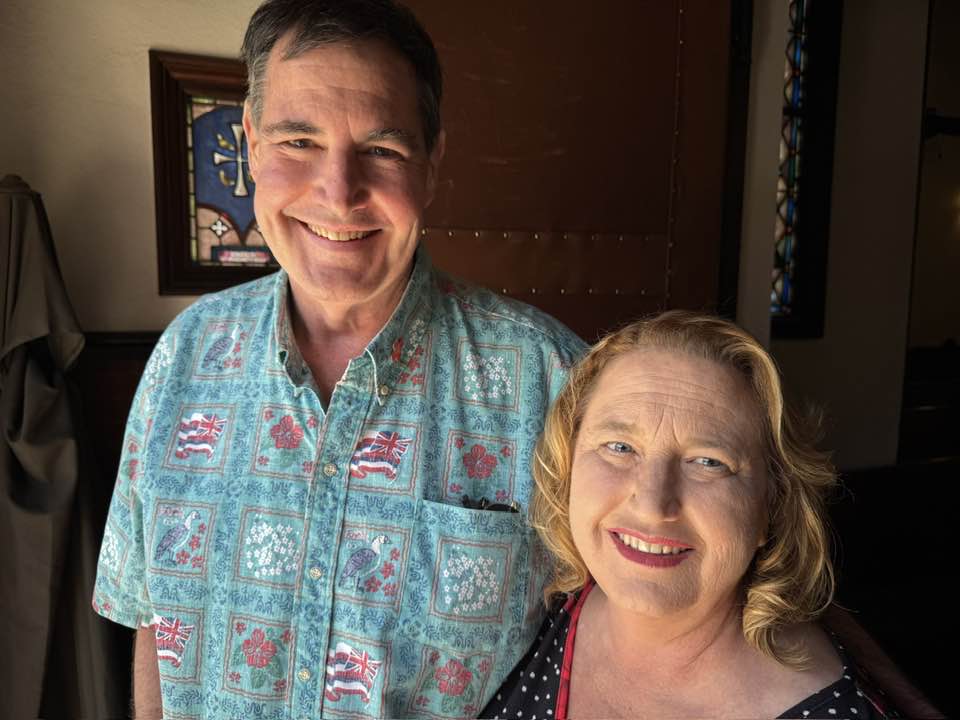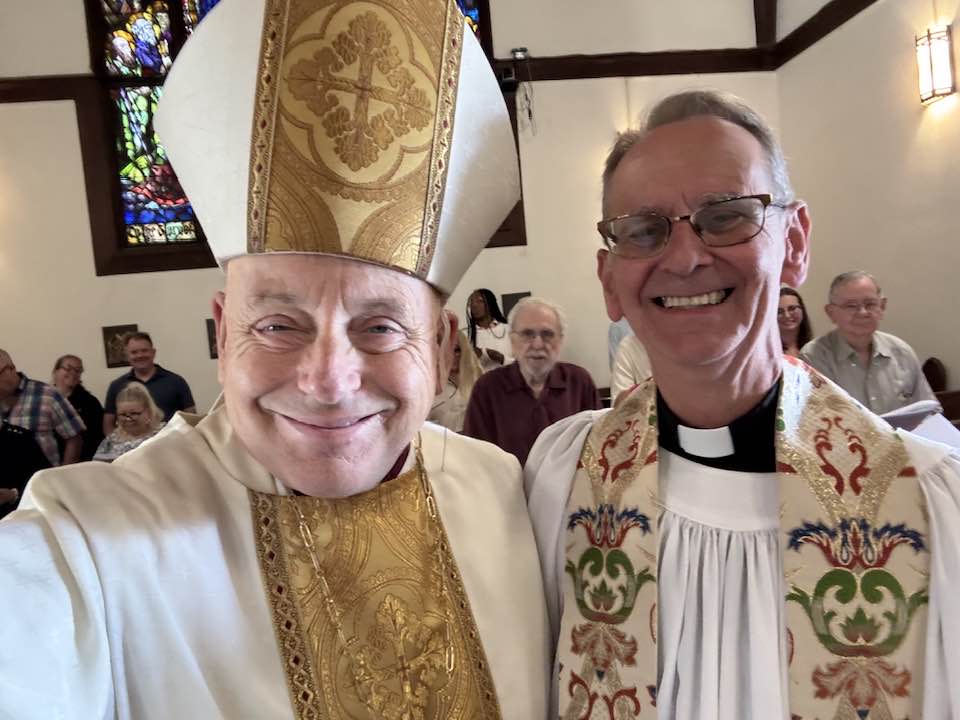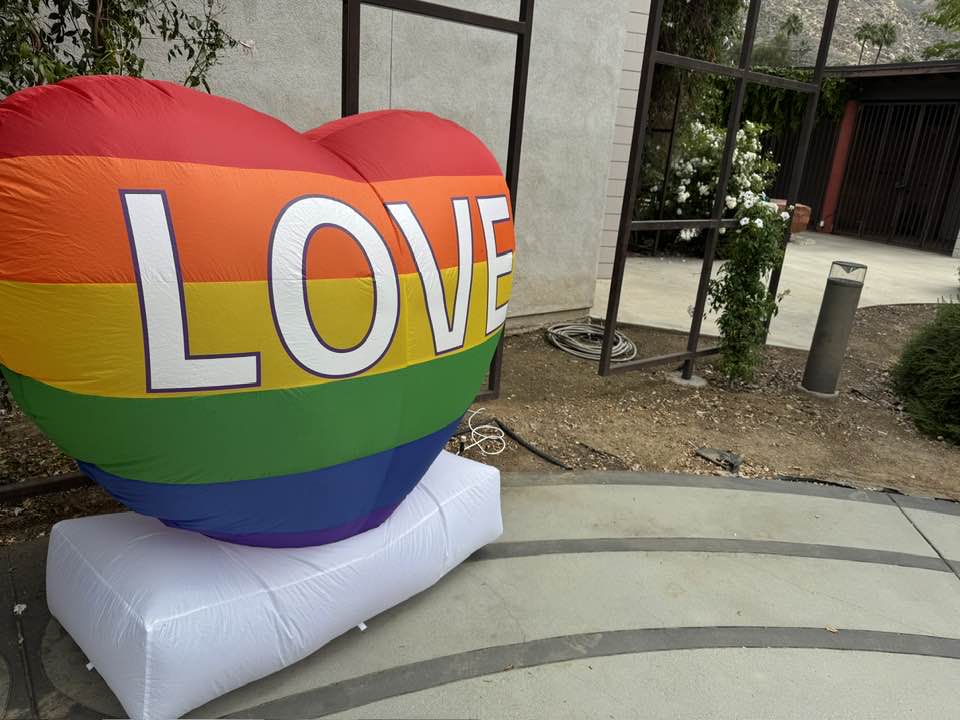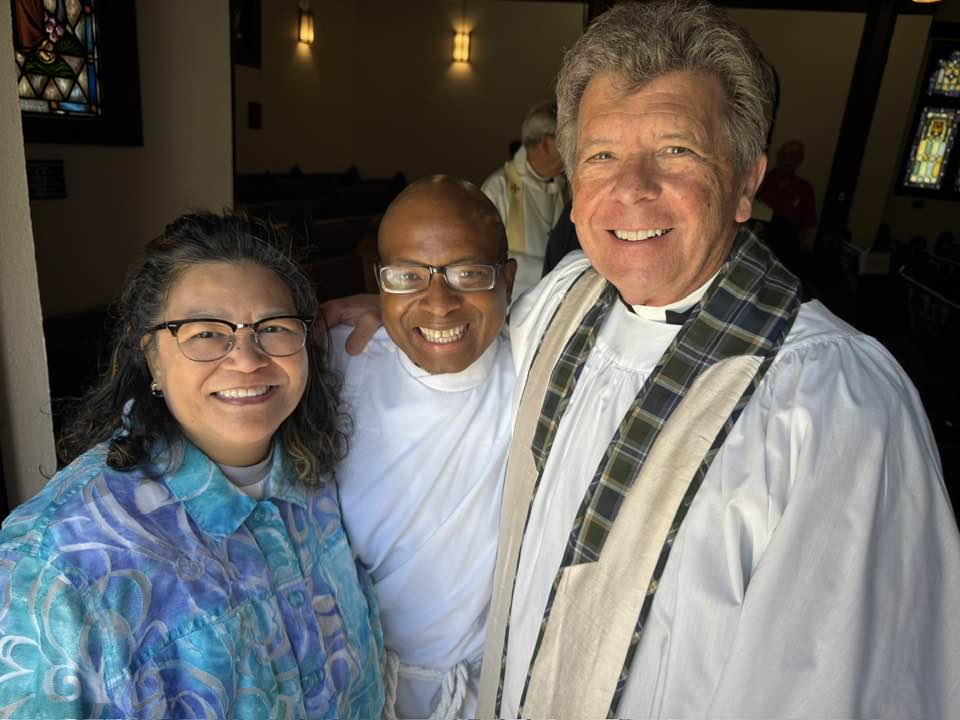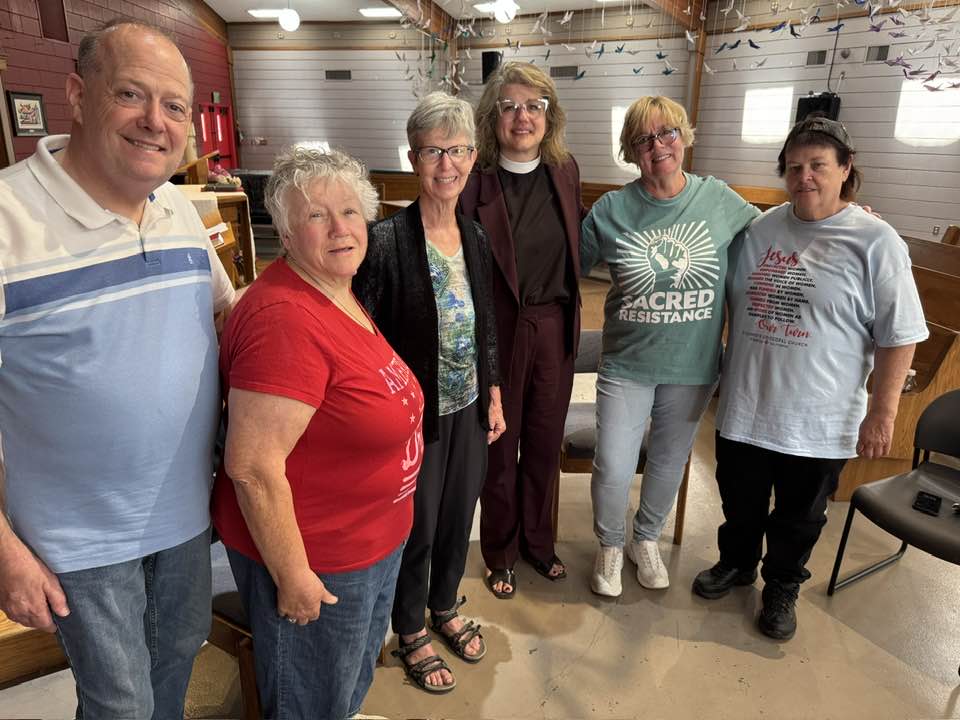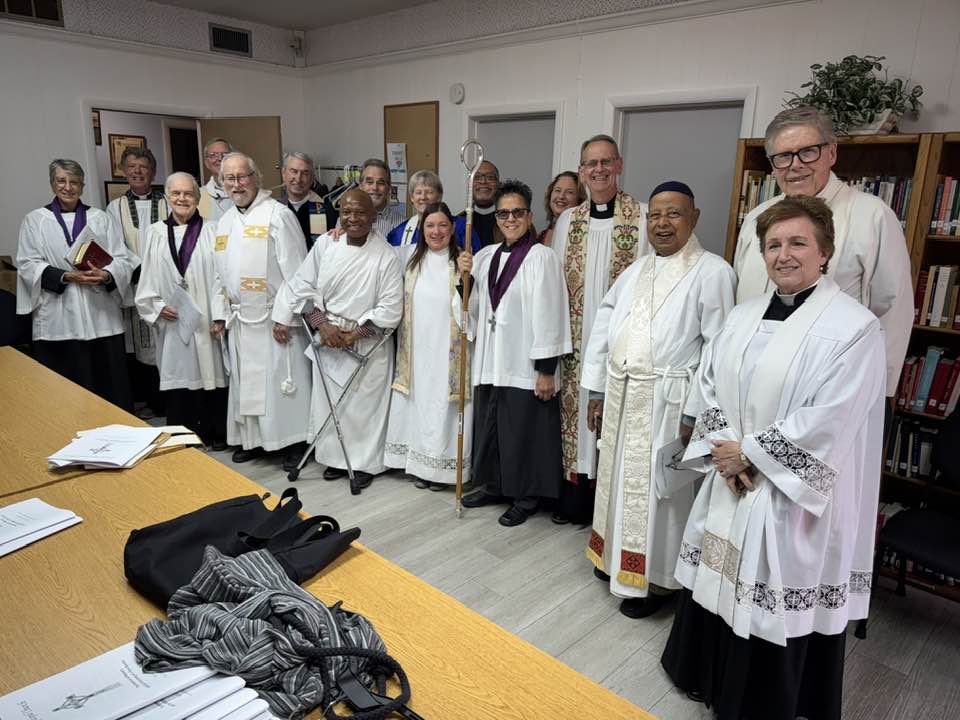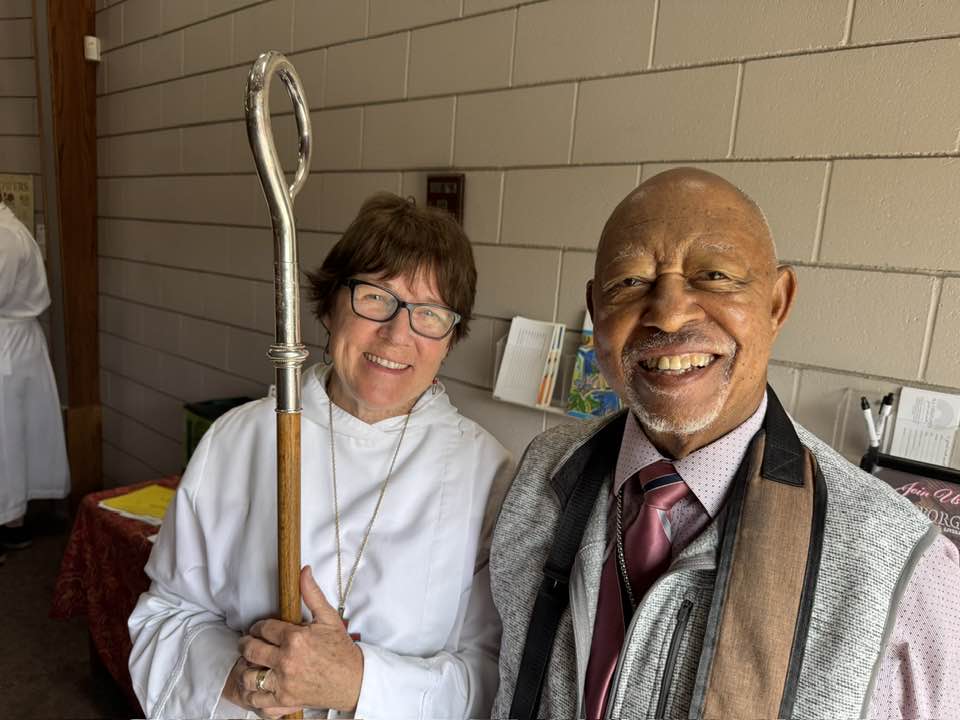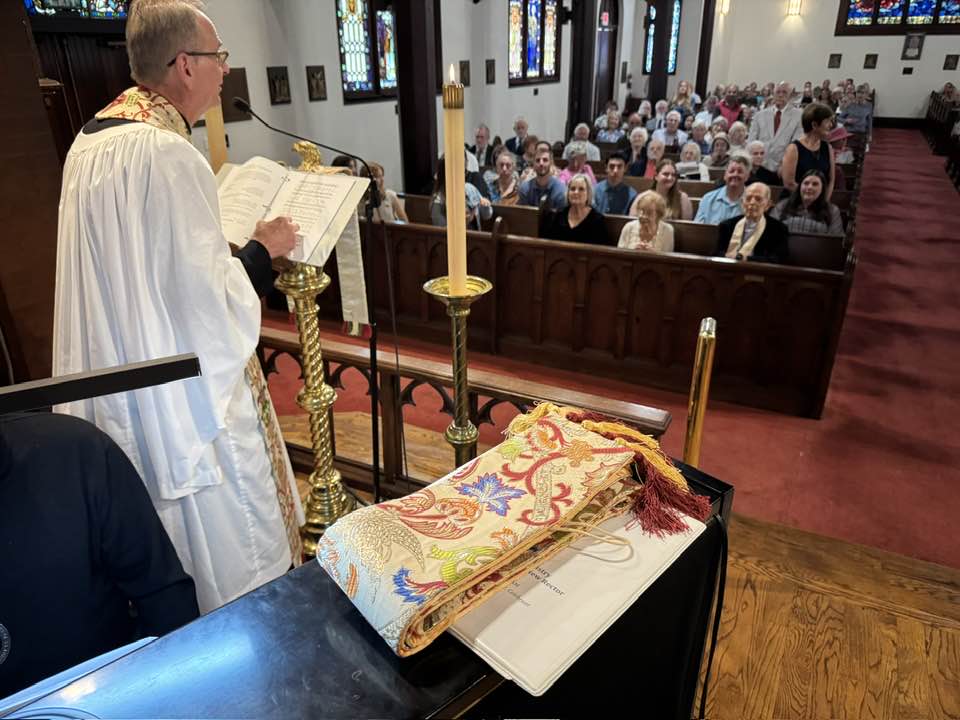
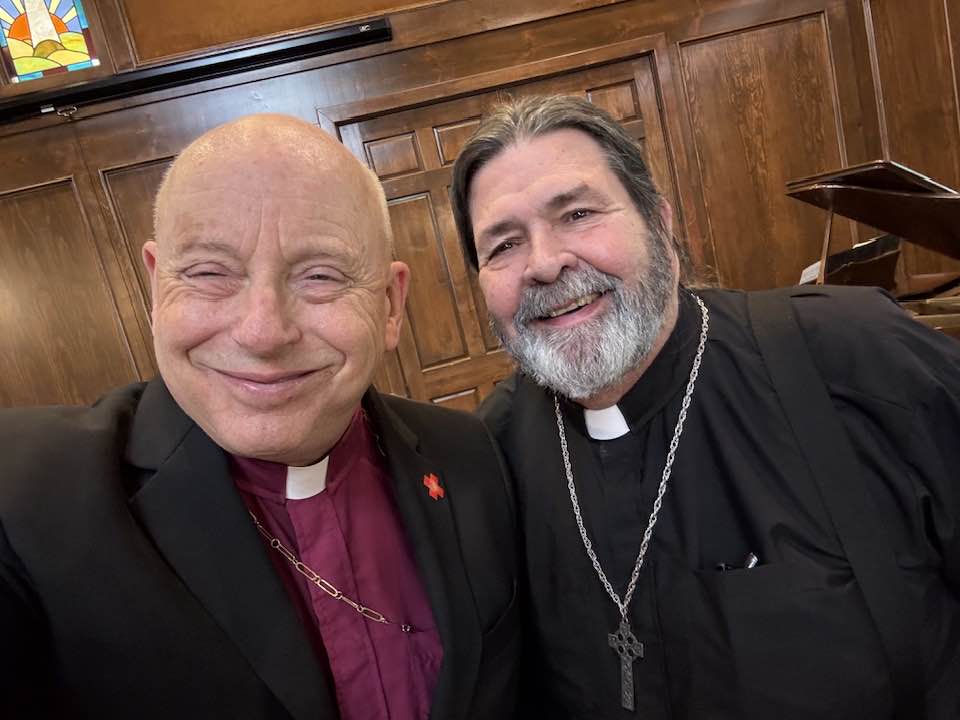
I had a rich weekend of ministry in the Inland Empire, perhaps the largest swath of the vast Episcopal Diocese of Los Angeles. Our congregations in Riverside and San Bernardino counties are redolent of the U.S. heartland. Some missions and parishes are purple, their members exhibiting a healthy range of political outlooks. Or the Episcopal church in town may be a touch of blue against a red and purple background. Whatever their beliefs, IE folks are hearty, friendly, and independent. They enjoy telling you why they came to town, why they stayed, or why they left and came back.
For nearly a decade, the Very Rev. Canon Bill Dunn has been dean of the missions and parishes in deanery VII, covering most of the Inland Empire. His collegial duties sometimes take him, if not from Tucson to Tucumcari, then from Needles to Apple Valley. Several years ago, we asked him to develop cooperative ministry among St. Stephen’s in Beaumont, where he served as vicar, St. Alban’s in Yucaipa, and Trinity in Redlands. That work accomplished, he has now been called as Trinity’s rector. On Saturday morning I presided at a celebration of the ministry he and Trinity share.
Director of music for a half-century, Canon Jeffrey H Rickard had the choir in magnificent voice as always. Maryhelen Campa, devoted retired teacher and caregiver to her independent father in his nineties, was my superb volunteer chaplain. Deacons, priests, and lay leaders came from all over Bill’s deandom, including our preacher, Trinity’s one-time associate rector, the Rev. Canon John Saville, who preached gently and wisely into the political moment. “Perhaps the most we can hope and pray and work for is not a perfect, but a more perfect union, whether that is our family, church family, community, country or world,” he said, praising Bill for his many gifts for leadership. “But don’t mistake unity for uniformity. We don’t have to give up our convictions to listen and learn and grow from others’ stories and experiences. The best place to start is to consider not what but who we have in common.”
Bill’s gifts include political deftness he honed as a state official in his native Texas. After the service, assisted by his gracious and gregarious spouse, Sharron, and presided over by wardens Bob Bourne and Mary Frances Petite, the church threw a Texas BBQ, complete with Shiner Bock beer and equally attractively and prominently presented non-alcoholic options. The Dunns’ daughter, Anna, a Cal grad as of last December, took time away from studying for the MCATs to serve as volunteer photographer.
Over tender brisket, it was a joy to compare notes with the Rev. Michael Cunningham, Bill’s brother-in-law; the Revs. Stacey Forte-Dupre and Guy Leemhuis; and my colleague the Rev. Thomas Quijada-Discavage, who has supported Bill and Trinity faithfully through their recent changes and chances.
My Sunday visitation at St. George’s Episcopal Church in Riverside was a second helping of IE joy. In June, its vicar, the Rev. Dr. Karri Backer, a brilliant teacher and spiritual director, will begin her fifth year of ministry at this innovative mission church near the campus of the University of California, Riverside.
I was along to preach and preside at the confirmation of Robert Jenkins, a sociable former Southern Baptist for whom The Episcopal Church was a miracle of welcome and inclusion. LGBTQ+ equity is a particular charism of St. George’s, which the night before had hosted a musical revue, “Drag ‘Em to Church,” attended by 80. Campus missioner Eli Macias capped the school year by establishing St. George’s new campus ministry as the first open and affirming Christian club in UCR history.
After a quick preacher’s review of terms from our readings — baptism, Jerusalem, and Advocate — I turned to the work of Memorial Day. “In all our nation’s wars, across four centuries, about 1.3 million people gave their lives. Depending on the war, the cause wasn’t always just, but their individual sacrifices place them beyond judgement,” I said. “They died for the propositions that all people are created equal. That liberty and justice are for all. That a decent nation ensures that all its people enjoy life, liberty, and the pursuit of happiness. In the same way that we have defined our terms this morning, a free people is entitled to insist that its leaders say what they mean by these words. Justice. Equality. Human rights. Freedom. Welcome. No leader who doesn’t get the answers right should dare ask one more young American to risk adding their name to the long roll call of Memorial Day.”
Yet another delicious BBQ followed church, with hot dogs wrapped in bacon, burgers stuffed with feta, and plenty of conversation and fellowship. Karri also arranged for me to meet with the hardest-working bishops’ committee out east.
Especially earning her appetite was Dr. Virginia Haisten, longtime director of music ministries, who kept congregants in their pews, notwithstanding the smells wafting from the kitchen, with a rousing, complex organ postlude I hadn’t heard before. She told me it was the “Gloria” from a mass by Margaret Vardell Sandresky, a Macon, Georgia-born composer, college professor, and church organist whom Virginia met as an undergraduate at Salem College in North Carolina. Her Ph.D project at Stanford was compiling and editing Sandresky’s collected works. Now 104, Margaret is said to have been working as recently as her 100th birthday. A friend of both women from Winston-Salem days is St. George’s’ gifted cantor, Tripp Dopener. All our mission and parishes enclose universes of stories such as these.
